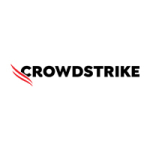What is our primary use case?
We primarily use the solution for monitoring, intrusion detection, and prevention. It is mostly a lot of security and network and server monitoring.
How has it helped my organization?
It automated the way we look at intrusion detection and prevention. It automatically picks up intrusion attempts within our environment.
What is most valuable?
The monitoring and the security functionality are the most valuable aspects of the solution.
It is easy to set up.
It is very scalable.
You can basically make it do whatever you want, from log management and monitoring security, intrusion detection, prevention, and linking to your antivirus to report to it. Having kind of a single point where everything feeds in and create dashboards however you like is useful and works with how many ever systems you want in that dashboard.
What needs improvement?
I've not come across any areas that need improvement.
I'd like to see more integration with more antivirus systems.
For how long have I used the solution?
We've used the solution for roughly, one year and a half years.
What do I think about the scalability of the solution?
The solution is highly scalable.
We have four people that use the solution and they were split between infrastructure and security.
We don't have a plan to increase usage as we're almost at capacity with our servers, for our purposes. I don't think we're going to scale it as we're using everything we can from anything we need. However, it's intensely used for security purposes.
How are customer service and support?
Technical support is perfect.
How would you rate customer service and support?
How was the initial setup?
The initial setup was straightforward. It was done by Splunk entirely. After that, the configuration took a bit of time, however, we bought professional service days from them to help us build the configuration.
The full deployment took about five months due to the fact that we have quite a lot of servers.
I'd rate the experience a five out of five in terms of ease of execution.
The amount of people you require for deployment and maintenance depends on the complexity of the environment. It can be run and managed by a single person if the environment is not highly complex. If you're talking about probably less than 200 servers, and a couple of network endpoints, one person can manage it easily after it's been configured. Otherwise, I wouldn't be able to say. In more complex environments where you've got several geographical locations, several data centers in geographical locations, and so on, you'd probably need more than one.
What about the implementation team?
Splunk handled the implementation. It was a joint effort between them bringing the knowledge and us doing the actual work.
What was our ROI?
It's a great investment, especially if you want to strengthen your security stance.
What's my experience with pricing, setup cost, and licensing?
It's yearly a yearly license on a three-year contract. On a three-year contract, you get a discount basically - rather than putting it on a rolling yearly contract.
On pricing, if I base it on the functionality of the system out of the box, I would rate it five out of five.
They have several prepackaged modules you can purchase. For example, for the security type, they have Security Enterprise, with the default products getting security essentials. With Infrastructure, the same. We've got an ITOps enterprise, which again, is payable on top of the standard license.
It's pretty much how much you can actually build in-house. The difference between AT&T, LogRhythm, and Splunk, while AT&T and LogRhythm are pretty out of the box (it's click and configure), Splunk is highly configurable.
You can make it do whatever you want to, as long as you know how to edit the configuration files. What ITOps and Security Enterprise do, instead of you having to build all that from the ground up, so the dashboards, the logic behind it, the configuration files, and so on, become prepackaged and pre-installed.
Which other solutions did I evaluate?
We did test AT&T and LogRhythm as well. We chose this solution as a balance between cost and functionality.
AT&T was a great security tool, however, it lacked a lot of the infrastructure things that Splunk does, in terms of server monitoring and network monitoring. LogRhythm did have a dose, however, at a very prohibitive price. It was almost twice the cost of Splunk.
What other advice do I have?
We've got a version of Splunk Cloud. I'm not sure of which version.
I'd advise users to get more professional service days. You get five professional service days with the product, when you buy the license, usually. Definitely get at least ten more.
You need to have some strategy before. You definitely need a strategy. Before you do your PS days, definitely have a look at your strategy and make sure you've arranged your questions rather diligently. Based on how you think you're going to use the system, where you are where you want to be, just box them into separate parts - security, infrastructure, and monitoring. It's going to make life a lot easier when you talk to consultants as the consultants are very, very knowledgeable. However, you need to ask the right questions.
I'd rate the solution ten out of ten.
Which deployment model are you using for this solution?
Public Cloud
If public cloud, private cloud, or hybrid cloud, which cloud provider do you use?
Amazon Web Services (AWS)
Disclosure: My company does not have a business relationship with this vendor other than being a customer.




















